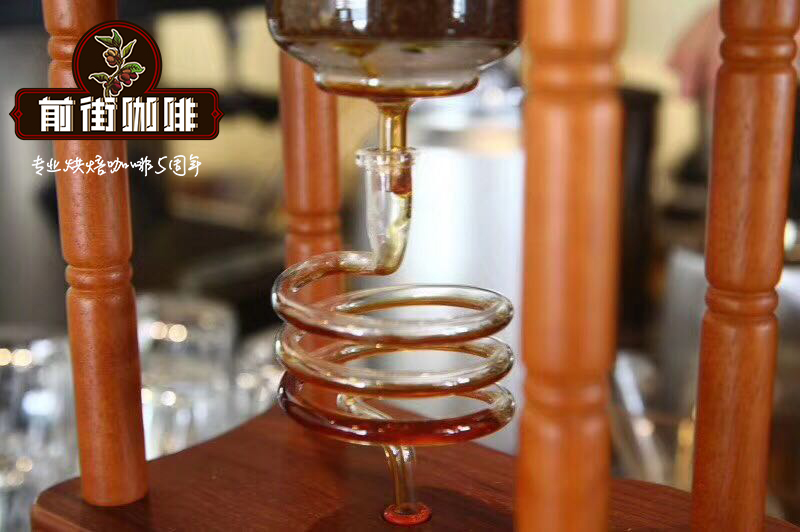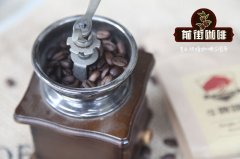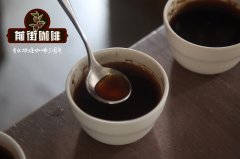El Salvador boutique manor coffee beans Santa Rita Manor washed beans flavor and planting environment

Professional coffee knowledge exchange more coffee bean information please follow the coffee workshop (Wechat official account cafe_style)
El Salvador boutique manor coffee beans Santa Rita Manor washed beans flavor and planting environment?
Introduction:
El Salvador is the smallest and most densely populated country in Central America. Coffee beans are the main agricultural products in most regions, and 60% of the coffee beans are traditional bourbon trees. Santa Rita Manor, which belongs to the JASAL Group, is located between the Apaneca Ilamatepec Mountains in the famous coffee producing area of Juayua province in the west of El Salvador. The local geology belongs to sandy soil and volcanic soil with fertile soil. The warm and humid microclimate with an average annual temperature of 15 degrees Celsius and an average rainfall of more than 2000 mm is considered to be the best coffee growing area in El Salvador, with the dedication and professionalism of the manor operators to produce one of the best quality coffee in the country.
JASAL grows, processes and exports high-quality Salvadoran coffee and runs a family business that has been in the coffee business for more than 100 years. JASAL's coffee comes from the Apaneca-Ilamatepec producing area, and all the planted forest belts are along the high altitude areas of Santa Ana, Ahuachap á n and Sonsonate volcanoes, which are very suitable for the growth of high-quality coffee. 95% of the coffee has natural shade and strives to maintain the ecological balance of native woodland, native species, rivers, waterfalls and lagoons in the planting area.
JASAL has a well-trained team of agricultural experts to ensure that the planting process is up to standard and to monitor the quality of coffee growth so that each batch of output is traceable. The built treatment plant Las Cruces can be called a model processing center in the country, and the main body of the plant is an ancient building with a history of more than 100 years. In the Las Cruces treatment plant, through the improvement of decoration equipment and dry / wet treatment technology, the coffee industry in this area can be more environmentally friendly. JASAL's processing plant has the ability to handle washed, semi-washed and sun-dried coffee, while experimenting with drying in different ways, such as African netting, scaffolding, or mechanical drying. After investing in the construction of a new washing treatment plant, the capacity of coffee processing operations will be enhanced on the premise of significantly reducing the amount of water resources used in the past.
JASAL coffee plantations are mostly surrounded by small communities. Local residents are directly involved in the production of coffee plantations. As a sustainable enterprise, JASAL provides education and child care, organizes medical services and provides necessary transport support, increases family welfare and focuses on improving the quality of life of residents. It is believed that each community farm has a specific relationship with a specific coffee brand. JASAL holds an art competition to encourage members to design brands and trademarks, further demonstrating their enthusiasm for the coffee industry through drawings.
Producer: Santa Rita Manor
Altitude: 1400m
Variety: Bourbon,Catimor,Pacas
Treatment: washing
Variety: SHG
Harvest period: November to February of the following year
Certification: rainforest Alliance (Rainforest Alliance)
Flavor description: peanut sugar, pine nuts, almonds, sugar fried chestnuts, sweet oolong tea, sweet bourbon strain.
El Salvador, the smallest and most densely populated country in Central America, has been growing coffee since 1740, according to relevant literature. 8% of the country grows coffee in shade (Shade Grown planting under trees), which has the advantages of uniform ripening of coffee beans, increased honey mucus content, high weight, increased opportunities for the formation of sweet polyphenols, and full formation of the main ingredients of coffee beans. For coffee trees with too much sunshine, the edges of the leaves will be rolled up, causing water loss, which is not conducive to photosynthesis, reduce carbon dioxide absorption, and reduce the combination of sugar. Saguo coffee fruits are harvested only once a year, mostly from November to February of the following year. More than 60% of the varieties are bourbon strains. In particular, it is worth mentioning that Sacramento is the most important country for growing Pacas and Pacamara. In addition, the coffee grading system in Saudi Arabia is basically divided into three grades according to the altitude of planting, the lowland C.S. (500murm 900m), the highland H.G. (900m Murray 1200m), and the extremely highland S.H.G. (1200m Muel -).
□ Santa Rita Manor is named "Santa Rita" in honor of Italian nuns of the same name. Located in the Ilamatepec volcanic area, the fertile volcanic mud provides the Santa Rita Farm with ideal soil for growing coffee, all coffee trees have shade, and these shade trees become habitats for local animals. Coffee is harvested 100% by hand and only fully ripe coffee similar to red cherries is picked.
Flavor: washing batches-berries, caramel, milk, nuts, sun-treated batches-cocoa berries, apricots, raisins, nutmeg nuts
Important Notice :
前街咖啡 FrontStreet Coffee has moved to new addredd:
FrontStreet Coffee Address: 315,Donghua East Road,GuangZhou
Tel:020 38364473
- Prev

El Salvador boutique manor coffee beans HiU Project Carmen Manor Sun bourbon Flavor and species
Professional coffee knowledge exchange more coffee bean information please follow the coffee workshop (Wechat official account cafe_style) El Salvador boutique manor coffee beans HiU project Carmen Manor Sun bourbon flavor and planting history? Introduction: Carmen Manor is located in the Chinchontepeq volcano, in the local aboriginal language, Chikantipike has a beautiful and attractive ya
- Next

El Salvador boutique manor coffee beans green hill manor Bobolong processing plant yellow bourbon red bourbon
Professional coffee knowledge exchange more coffee bean information please follow the coffee workshop (Wechat official account cafe_style) El Salvador boutique manor coffee beans green hill manor Bobolone processing plant yellow bourbon red bourbon growing sun beans characteristics and flavor? Introduction: the green hill manor is near San Salvador, the capital of El Salvador, at an altitude of 4500 feet. Coffee cultivation has experienced five years.
Related
- Detailed explanation of Jadeite planting Land in Panamanian Jadeite Manor introduction to the grading system of Jadeite competitive bidding, Red bid, Green bid and Rose Summer
- Story of Coffee planting in Brenka region of Costa Rica Stonehenge Manor anaerobic heavy honey treatment of flavor mouth
- What's on the barrel of Blue Mountain Coffee beans?
- Can American coffee also pull flowers? How to use hot American style to pull out a good-looking pattern?
- Can you make a cold extract with coffee beans? What is the right proportion for cold-extracted coffee formula?
- Indonesian PWN Gold Mandrine Coffee Origin Features Flavor How to Chong? Mandolin coffee is American.
- A brief introduction to the flavor characteristics of Brazilian yellow bourbon coffee beans
- What is the effect of different water quality on the flavor of cold-extracted coffee? What kind of water is best for brewing coffee?
- Why do you think of Rose Summer whenever you mention Panamanian coffee?
- Introduction to the characteristics of authentic blue mountain coffee bean producing areas? What is the CIB Coffee Authority in Jamaica?

